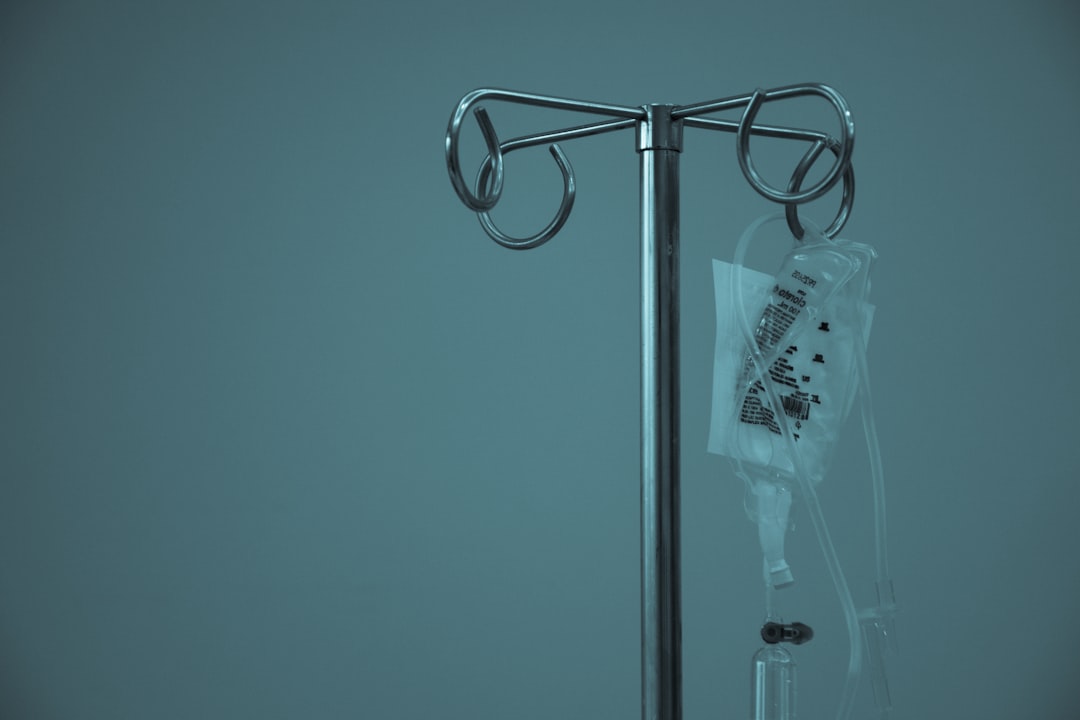

Healthcare errors are unfortunately a common occurrence in the medical field, and they can have serious consequences for patients. Some of the most common types of healthcare errors include medication errors, surgical errors, diagnostic errors, communication errors, and equipment failures.
Medication errors occur when patients are given the wrong medication or the wrong dosage of a medication. This can happen due to a number of reasons, such as illegible handwriting on prescriptions, confusion between similar-sounding drug names, or incorrect calculations by healthcare providers. Medication errors can lead to serious harm or even death if not caught in time.
Surgical errors can occur during any type of surgical procedure, including minor surgeries and major operations. These errors can include operating on the wrong body part, leaving foreign objects inside the patient's body, or making mistakes during the surgery that result in complications for the patient.
Diagnostic errors happen when healthcare providers fail to correctly identify a patient's condition or illness. This can lead to delays in receiving appropriate treatment or unnecessary treatments that could harm the patient. Diagnostic errors are particularly dangerous because they can result in serious health consequences if not corrected promptly.
Communication errors are another common type of healthcare error that can have serious implications for patient care. These errors can occur between healthcare providers themselves, between healthcare providers and patients, or between different departments within a healthcare facility. Poor communication can lead to misunderstandings about a patient's care plan, delays in treatment, or even missed diagnoses.
Equipment failures are also a common source of healthcare errors. Malfunctioning medical devices or equipment can lead to incorrect test results, delayed treatments, or even patient injuries. It is essential for healthcare facilities to regularly inspect and maintain their equipment to prevent these types of errors from occurring.
In conclusion, healthcare errors are a significant concern in the medical field and can have serious consequences for patients' health and well-being. By being aware of common types of healthcare errors and taking steps to prevent them from happening, healthcare providers can improve patient safety and provide better quality care for their patients.
Healthcare errors can have serious consequences for patients, ranging from minor inconveniences to life-threatening situations. Understanding the causes of these errors is crucial in order to prevent them from happening in the future.
One common cause of healthcare errors is miscommunication among healthcare providers. When information is not effectively communicated between doctors, nurses, and other staff members, important details can be missed or misunderstood, leading to mistakes in patient care. This lack of communication can occur due to a variety of factors, such as busy work environments, reliance on electronic medical records, or language barriers.
Another cause of healthcare errors is human error. Healthcare providers are only human and are prone to making mistakes just like anyone else. Factors such as fatigue, stress, or distractions can all contribute to errors in judgment or performance. Additionally, lack of training or experience in certain procedures can also lead to mistakes being made.
In some cases, systemic issues within healthcare organizations can contribute to errors occurring. Inadequate staffing levels, poorly designed workflows, or outdated technology can all create an environment where errors are more likely to happen. Without addressing these underlying issues, it becomes difficult to prevent errors from occurring on a regular basis.
Overall, it is important for healthcare providers and organizations to recognize the various causes of healthcare errors in order to develop strategies for preventing them. By improving communication among staff members, addressing human factors that contribute to error-prone behavior, and implementing changes at the organizational level to promote patient safety, we can work towards reducing the incidence of healthcare errors and providing better care for all patients.

Medical malpractice is a serious issue that can have devastating effects on patients and their families.. When healthcare professionals fail to provide the standard of care expected of them, it can lead to significant harm or even death.
Posted by on 2024-10-21

Filing a medical malpractice lawsuit can be a daunting and overwhelming process.. It is important to understand the steps involved in order to protect your rights and seek justice for any harm you have suffered due to medical negligence. The first step in filing a medical malpractice lawsuit is to consult with a qualified attorney who specializes in medical malpractice cases.
Posted by on 2024-10-21

Medical malpractice cases can arise in a variety of situations, but there are some common types that tend to occur more frequently than others.. These cases involve allegations of negligence or misconduct on the part of healthcare providers, which can result in harm or injury to patients.
Posted by on 2024-10-21

When it comes to finding the right medical malpractice lawyer for your case, it's important to do your research and make an informed decision.. Medical malpractice cases can be complex and challenging, so having a knowledgeable and experienced lawyer on your side is crucial.
Posted by on 2024-10-21
Healthcare errors can have a profound impact on patients, both physically and emotionally. When a mistake is made during a medical procedure or treatment, it can lead to serious consequences for the patient. These errors can range from medication mix-ups to surgical mistakes, and they can result in anything from minor discomfort to permanent disability or even death.
The physical impact of healthcare errors on patients is often immediate and severe. Patients may experience pain, infection, or complications as a result of the mistake. In some cases, they may need additional treatments or surgeries to correct the error, which can further exacerbate their condition. The financial burden of these additional procedures can also be significant, adding stress to an already difficult situation.
In addition to the physical consequences of healthcare errors, patients may also experience emotional distress. Trust in their healthcare providers may be shaken, leading to feelings of anxiety or fear about future treatments. Patients may also feel anger or frustration at having been harmed by a preventable mistake. This emotional toll can have long-lasting effects on a patient's well-being and quality of life.
Overall, the impact of healthcare errors on patients is far-reaching and multifaceted. It is essential for healthcare providers to take steps to prevent errors whenever possible and to be transparent with patients when mistakes do occur. By acknowledging and addressing these errors, providers can work towards rebuilding trust with their patients and minimizing the potential harm caused by healthcare mistakes.

Healthcare errors are a serious concern that can have detrimental effects on patients and their families. In order to prevent these errors from occurring, healthcare professionals must implement strategies that prioritize patient safety and quality of care.
One key strategy for preventing healthcare errors is effective communication among healthcare team members. This includes clear and concise communication between doctors, nurses, pharmacists, and other healthcare providers. By ensuring that everyone is on the same page regarding a patient's care plan, potential errors can be caught and corrected before they harm the patient.
Another important strategy is thorough documentation of patient information and care procedures. Accurate and detailed record-keeping can help prevent misunderstandings or oversights that could lead to errors in treatment. Healthcare providers should also regularly review and update patient records to ensure that they have the most up-to-date information available.
Additionally, implementing protocols and guidelines for standardizing care practices can help reduce the risk of errors in healthcare settings. By following established procedures for medication administration, surgical techniques, and other healthcare interventions, providers can minimize the likelihood of mistakes occurring.
Overall, preventing healthcare errors requires a proactive approach that emphasizes collaboration, communication, and attention to detail. By implementing these strategies consistently across all levels of care delivery, healthcare organizations can work towards ensuring the safety and well-being of their patients.
Healthcare errors can have serious consequences for patients, leading to harm or even death in some cases. It is essential for healthcare professionals to play a crucial role in reducing these errors and ensuring the safety of their patients.
One way in which healthcare professionals can help reduce errors is by practicing good communication and teamwork. By effectively communicating with their colleagues, they can ensure that important information is not overlooked and that everyone is on the same page when it comes to patient care. This can help prevent misunderstandings that could lead to mistakes.
Another important role that healthcare professionals play in reducing errors is by following established protocols and guidelines. By adhering to best practices and standard procedures, they can minimize the risk of making mistakes while providing care to patients. This includes double-checking medications, verifying patient identities, and taking steps to prevent infections.
In addition, healthcare professionals should always be open to feedback and willing to learn from their mistakes. By acknowledging when an error has occurred and taking steps to correct it, they can prevent similar incidents from happening in the future. This culture of accountability can help improve patient safety and reduce the likelihood of errors occurring.
Overall, healthcare professionals have a critical role to play in reducing errors and ensuring the safety of their patients. By practicing good communication, following established protocols, and being open to learning from mistakes, they can help prevent errors from occurring and provide high-quality care to those who need it most.
It is crucial in the field of healthcare that reporting and learning from mistakes is given the utmost importance. Healthcare errors can have serious consequences for patients, ranging from minor inconveniences to life-threatening situations. By reporting these errors, healthcare professionals can identify patterns and trends that may indicate systemic issues within their organizations.
Learning from mistakes allows healthcare providers to implement measures to prevent similar errors from occurring in the future. It also fosters a culture of transparency and accountability, which is essential for maintaining patient trust and safety.
Furthermore, reporting and learning from mistakes can lead to improvements in overall patient care. By recognizing and addressing errors, healthcare organizations can enhance their processes and protocols, ultimately providing better outcomes for patients.
In conclusion, the importance of reporting and learning from mistakes in healthcare cannot be overstated. It is a critical component of ensuring patient safety, improving quality of care, and fostering a culture of continuous improvement within healthcare organizations.